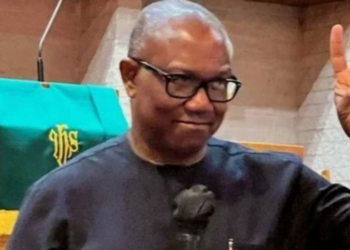The lingering epileptic power supply has left a sour taste in the mouth of Nigerians, to the point that the authorities concerned have decided to change tactics in a bid to ensure success as DAVID AGBA reports
It is often said that to who much is given, much is expected. Electricity is that infrastructure that holds the key to any major industrial revolution. Nigeria has for several decades been wallowing under inadequate supply of electricity and past governments have always tried to no avail to fix the nation’s power sector, without any success.
This prompted former President Goodluck Jonathan to privatise the power sector, after another former President, Chief Olusegun Obasanjo even changed the organisation’s name from the National Electric Power Authority (NEPA) to Power Holding Company of Nigeria (PHCN), prior to his leaving office in 2007, yet, no result.
Today, there are generation and distribution companies that evolved from the reform and privatisation exercise, owned by private individuals and corporate entities, yet, the authorities are being knocked on a daily basis because the system is yet to deliver the dividends of privatisation to Nigerians.
It was on the basis of the foregoing that the acting Director-General of the Bureau of Public Enterprises (BPE), the secretariat of the National Council on Privatisation (NCP), Dr. Vincent Onome Akpotaire explained that the choice of the Bureau’s staff as Alternate Directors on the Boards of privatised power successor companies in the country is to checkmate the investors and not for pecuniary gains as it is erroneously believed.
Declaring open a one-day corporate governance training for the alternate directors and other staff of the Bureau in Kaduna recently, Akpotaire said that as the agency that superintended and executed the power reform and privatisation, its staff were better placed to sit on the Boards of the power companies to check their activities.
He said the training became necessary to update the Alternate Directors and other staff of the Bureau involved in monitoring of privatised enterprises on modern trends in monitoring; adding that the Bureau under his leadership would focus on such trainings and general capacity building of staff.
The BPE helmsman charged the Alternate Directors to always live above board to justify the rationale behind their inclusion on the Boards.
In their joint presentation in a paper entitled: Corporate Governance and Responsibilities of Alternate Directors, Messrs Ayodele Oni and Ayo Sotinrin of the Nigeria Infrastructure Advisory Facility (NIAF) said that Corporate Governance is concerned with the process by which corporate entities are governed in order to ensure best practices and allowing the entities to maximize profit but not at the expense of the public.
They added that in developing a corporate governance framework, it is pertinent that same is anchored on international best practices and that the alternate directors are duty bound to act in the bonafide interest of the company even as they should not allow their personal interest to conflict with that of the company.
Mohammed Wakili, in his paper entitled: Building Blocks of MYTO and Historical Example, harped on the need for continuous government’s support in alleviating some of the liquidity challenges in the power industry and the need to honour the sanctity of all privatisation contracts.
In his presentation: Minority Shareholders Rights and Directors’ Duties under The Shareholders Agreement and Companies & Allied Matters Act, Mr. Chudi Nelson Ojukwu, a certified utility regulation specialist and former Director, Academics and Lecturer at the Nigerian Law School, explained the duties of directors under CAMA.
He said every board of directors creates a governance culture which is referred to as a pattern of belief, traditions and practices that prevail when the board convenes to carry out their duties and that Board must develop a culture of accountability and engagement.
Ojukwu warned that a Director must not make secret profits, gain unnecessary benefits or misuse corporate information, but must exercise his powers and functions in good faith and the best interest of the company, and must exercise the care, diligence and skill of a prudent director.
The Project Manager (Power) in the Bureau, Mr. Amaechi Aloke, speaking on the topic: India’s Power Sector Reform and Privatisation – A Case Study of New Delhi DISCO Privatisation, said power sector reform can provide a win-win situation for all stakeholders and that Nigeria’s power sector reform was designed after a careful study of reforms elsewhere subject to local circumstances to ensure the best possible outcome for Nigerians.
While noting that it is critical for all stakeholders in the power sector in Nigeria to work together and selflessly to ensure that the best interest of Nigeria is served, he said the global goodwill and interest shown in the Nigerian power transactions must not be wasted as “we may not be able to rekindle such interest if we refuse to seize this golden moment”.
In his remarks, the Director of Post-Privatisation Monitoring (PPM) in the Bureau, Mr. Chigbo Anichebe, said plans were on to organise similar training for other members of the boards of successor companies to keep them abreast with emerging trends in Corporate Governance.
He thanked BPE’s management for approving the training and the Kaduna state Governor, Mallam Nasir El- Rufai for sending a top government functionary to represent the state government.



